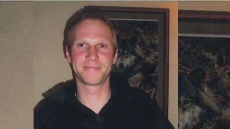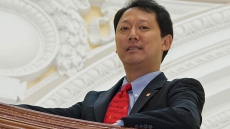HALIFAX — It's a quandry for health care professionals that has caught the attention of experts across the country: should family members and loved ones be told about a patient's struggle with mental health issues?
Nova Scotia is reviewing the rules around the disclosure of information under its health privacy laws after a grieving mother appeared at the legislature last month.
Carolyn Fox of Halifax partially blamed the laws in Nova Scotia for her lack of knowledge about her 21-year-old daughter Cayley's battle with depression. The young university student took her own life in January following three trips to the hospital emergency by ambulance last year — all but one without her mother's knowledge.
"There should be a red flag," Fox said in an interview.
"If a child has been sent to the hospital three times or even once, and they are going to hurt themselves...a parent needs to know."
Fox said the only information she has about her daughter's hospital visits came from Cayley after her last trip to the emergency room in December, leaving her to wonder if she could have helped.
She hopes Nova Scotia's review will result in considerations for parents of young adults between 18 and 25, many of whom are still in school and depend on their families for a variety of supports.
"How can we help our children if we don't know?" Fox said.
The issue is familiar territory for privacy commissioners in other provinces. In British Columbia, Elizabeth Denham responded to a recent editorial in the Victoria Times Colonist highlighting the lack of public information around several suicides dating back to 2006.
Denham noted the complexities involved, but pointed out that B.C.'s laws allow disclosure without consent where a person's health or safety is at risk. She said next of kin can also be informed in non-emergency situations when a person is injured or ill.
Former Ontario privacy commissioner Ann Cavoukian was a fierce defender of individual privacy rights, but also didn't hesitate to set public institutions straight when she felt they weren't forthcoming enough with information.
In 2008, she issued a joint statement with her B.C. counterpart clarifying that privacy rules allow health information to be disclosed in emergency situations. It came after the family of an 18-year-old Carleton University student blamed the Ottawa school for failing to inform them of her depression or prevent her suicide.
In an interview, Cavoukian was adamant that with mental health in particular, privacy laws must protect the confidentiality of the patient - but emphasized the provisions that allow for exceptions.
"The notion of opening the doors up to ... mental health issues being shared with parents, spouses or whomever, that will open up the flood gates of concern from people who want to seek out help," said Cavoukian. "In my view you would have the unintended consequence of fewer people going to see the therapist in the first place.
"The ability is already there for physicians or therapists if they think a person's life is at stake to contact people. But it is a fine line and they have to take that responsibility seriously."
Nova Scotia Health Minister Leo Glavine said public institutions often default to citing privacy laws when people are seeking information.
"They (the laws) are often accepted as a matter of fact, when in fact there is some ability and leeway within the current regulations to have information transmitted," he said.
Glavine said the province wants to examine when it might be appropriate to give information to families, especially in the case of young adults.
Nova Scotia's laws are similar to those in provinces such as Ontario and British Columbia, where disclosure can occur when it's determined there is an imminent threat to the health or the safety of any person, including the patient.
Family members can be told on the day of treatment about the presence, location and condition of a patient as long as the patient doesn't object to the information's release.
Catherine Tully, Nova Scotia's privacy commissioner, said she has concerns about whether officials and employees of government bodies know enough about what can and can't be disclosed.
"It is absolutely a training issue," said Tully. "I have travelled around the province and talked to hundreds of people responsible for administering our privacy laws and training is a very key issue and one that requires constant work."
Dr. Linda Courey, senior director of mental health and addictions for the Nova Scotia Health Authority, said clinicians are acutely aware of the "complicated balance" between an individual's right to privacy and understanding that families often have a need to know.
Courey said the mental health and addictions system in Halifax-area hospitals has worked over the last five years to highlight the importance of involving families, although she admitted more work needs to be done.
She said clinicians have been trained in information sharing and guidelines have been established to help them broach the subject of confidentiality with patients in way that would encourage them to grant disclosure to their families.
However, Courey said the patient's wishes are paramount and their privacy must always come first.
"Yes, that cuts off a source of support in some cases, absolutely, but that decision does not rest with the health care professional. It rests with the patient," she said.




